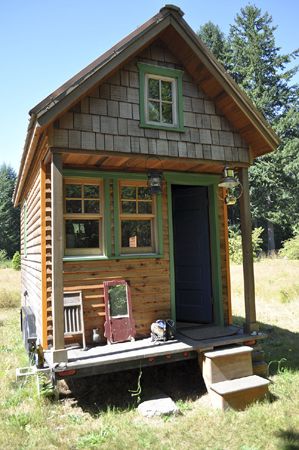
By Tammy - Weekend with Dee, CC BY 2.0, httpscommons.wikimedia.orgwindex.phpcurid=
11211682
In an interview of Tommy Caldwell, who wrote the just published book The Push, about inspiring exploits as a mountaineer and related philosophy, I heard this author say he had found himself at times in such straights that he lived on just $50 a month, but did not mind since he was at the time so focused on his climbing that almost nothing else mattered. While I was intrigued about his endeavors as a sportsman, I was more curious about the frugal habits he must have developed during that time. How does one subsist on only $50 a month? After thinking about it, I realized that for short periods this may be a challenging yet hardly impossible feat.
In Henry D. Thoreau's day, I believe he is said to have managed a solitary cabin, that he built and supplied himself, for only $26. He neglected to mention in Walden Pond that during his two-year vigil he walked over to his mother's place each day for a home-cooked meal.
Now too one can enjoy the hospitality of a succession of tolerant friends or relatives for next to nothing a year. Nevertheless, suppose that is not an option. In the book and movie The Road, two protagonists discover a cache of vittles plus places to sleep in an underground shelter and live there for a time. This might be an option today for frugal sojourners. However, the odds do not appear great that we come upon well stocked, unoccupied shelters whenever we might need them.
A few years back, an adventurous brother of mine spent several months paddling down the Missouri and Mississippi Rivers to the Gulf of Mexico. He lived then mostly out of a tent and his kayak, eating fish he caught or inexpensive foods prepared ahead and packaged for easy storage and transport. I think he probably did fine during that trip for under $50 a month, not counting occasional motel or restaurant breaks along the way.
 By Tammy - Weekend with Dee, CC BY 2.0, httpscommons.wikimedia.orgwindex.phpcurid= 11211682 |
Early in my college days, my near-campus room cost $15 a month, utilities included, and I snacked a lot on saltine crackers with peanut butter alternated with apples or little packages of raisins. A big meal might be a hot dog grilled on the open flame of my room's gas heater, then wrapped in a slice of white bread with mustard. Occasional rice dishes and cans of soup were reasonable ways to enliven a diet. Mostly, though, then as now, when I wanted to splurge I would go to restaurants. The difference was that the whole meal might cost $1.25, drink, salad, desert, tax, and tip included. Today I would be lucky to eat out for ten times that figure.
Tommy Caldwell's experience of living on $50 a month got me thinking, though, about the general notion of what is required for a good but thrifty lifestyle, not as a "starving student" and not in a third world country. I hypothesized we might do so with as little as $5,000-10,000 a year, total budget. This would work out to around $800 a month for room, board, and misc. expenses. Could that be done on a regular basis?
The answer is definitely "Yes," I think, but it would likely be a rather no-frills type of living, more reminiscent of my early childhood, when my folks - who had gotten through the Great Depression and so knew how to survive fairly well on relatively little - were starting out together after the rationing and separations of World War II, had as yet low earnings, and were also trying to put aside a percentage of their income for investments. Our housing was not extravagant, on occasion what might today be called fixer-uppers, yet was certainly ample. There were neither air-conditioning nor modern appliances. My mother did the laundry completely by hand or later with a little device that she cranked to remove excess water before clothes were hung out to dry. Modern fabrics did not exist, of course, so ironing was required for a lot of things. Mom supplemented canned goods with fresh veggies from her garden. At times there were rabbits or chickens. There were plenty of Vienna sausages, spam, tamales in a can, soups, crackers with pieces of cheese, salmon patties, tuna fish salad sandwiches, potatoes, Jell-O, and eggs. All of these cost comparatively little. I think Mom enjoyed the challenge of making of such simple fare fun and appetizing mealtimes. Most often, she succeeded!
I did a bit of checking online for how to spend a small budget wisely today and came up with these tips:
For much of our upbringing, my siblings and I lived comfortably and healthily despite our folks being prudent in their spending. People can still follow this model today. For me, the latest this or that, a new car every couple years, an ever expanding residence, or showy signs of wealth are not what living well are about. It does not mean we must deprive ourselves. Yet there are abundant, worthwhile values in a rewarding lifestyle, whether or not that includes a large budget. Living simply, though with needs met for both loved ones and oneself, can be golden.